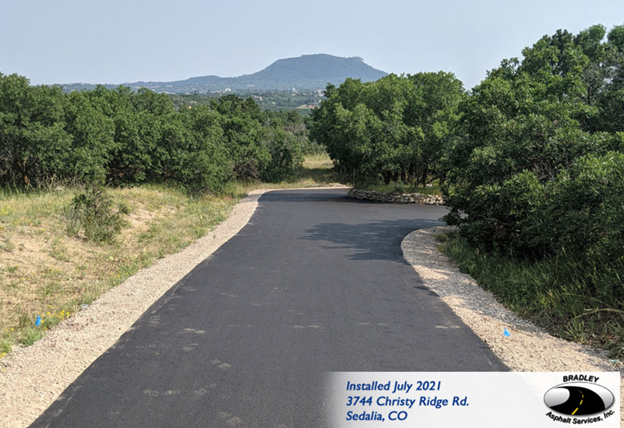
12/22/2023
The Ultimate New Asphalt Driveway Planning Checklist
Planning to install a new asphalt driveway is an exciting project that can enhance the curb appeal and functionality of your property. However, to ensure a smooth and successful driveway installation, it’s crucial to follow a comprehensive checklist. This checklist will help you navigate the planning process and make informed decisions every step of the way. Bradley Asphalt has been perfecting these important points for over 30 years, and are happy to advise you on the essential steps to consider when planning your new asphalt driveway.
- Choose the Right Contractor
Selecting the right contractor is one of the most critical decisions you’ll make during the planning process. Look for experienced, licensed, and insured asphalt contractors in your area. Ask for references and review their previous work to ensure their expertise aligns with your project goals. - Determine Your Budget
Before you start any project, it’s essential to establish a realistic budget. Asphalt driveways come in various styles and sizes, and costs can vary significantly. Consider factors such as driveway size, depth, grading, and any additional features like decorative edging or lighting. - Obtain Necessary Permits
Check with your local municipal or county government to determine if you need any permits for your new asphalt driveway. Regulations regarding driveway installation can vary from one area to another, so it’s crucial to be in compliance with local ordinances. - Assess Your Soil and Drainage
Proper drainage is essential to prevent water from pooling on your driveway. Evaluate your soil type to determine its drainage capacity. A qualified contractor can help with soil testing and suggest appropriate solutions, such as installing a proper base or adding drainage channels. - Determine the Driveway Layout
Consider the layout and design of your driveway. Factors like the shape, slope, and any curves or turns should be planned carefully. Additionally, think about whether you want any special features like a parking area, walkways, or decorative borders. - Choose Asphalt Type and Thickness
Discuss with your contractor the type of asphalt that best suits your needs. Typically, asphalt driveways are constructed using hot mix asphalt (HMA). Determine the appropriate thickness based on the expected traffic and load-bearing capacity required for your specific circumstances. - Evaluate Existing Trees and Landscaping
Take into account any existing trees, shrubs, or landscaping features that may need to be relocated or removed during construction. Consider how the new driveway will impact your property’s aesthetics and address any necessary adjustments. - Plan for Proper Edging
Edging is crucial for maintaining the structural integrity of your driveway. Decide whether you want concrete, brick, or other materials for your driveway’s edges. Proper edging will also enhance the appearance of your asphalt driveway. - Schedule the Construction Timeline
Discuss the timeline for your driveway installation with your chosen contractor. Keep in mind that weather conditions can affect the schedule, so flexibility is key. Plan the project around a time that minimizes disruptions to your daily routine. - Consider Maintenance
Think about the long-term maintenance of your asphalt driveway. Routine maintenance, such as sealcoating and crack sealing, is essential to prolong its lifespan and appearance.
A new asphalt driveway can significantly improve your property’s value, functionality and aesthetics. By following this comprehensive planning checklist, you’ll be well-prepared to make informed decisions, select the right contractor, and ensure a successful driveway installation that will serve you well for years to come. Remember that thorough planning is the key to a smooth and hassle-free asphalt driveway project.



